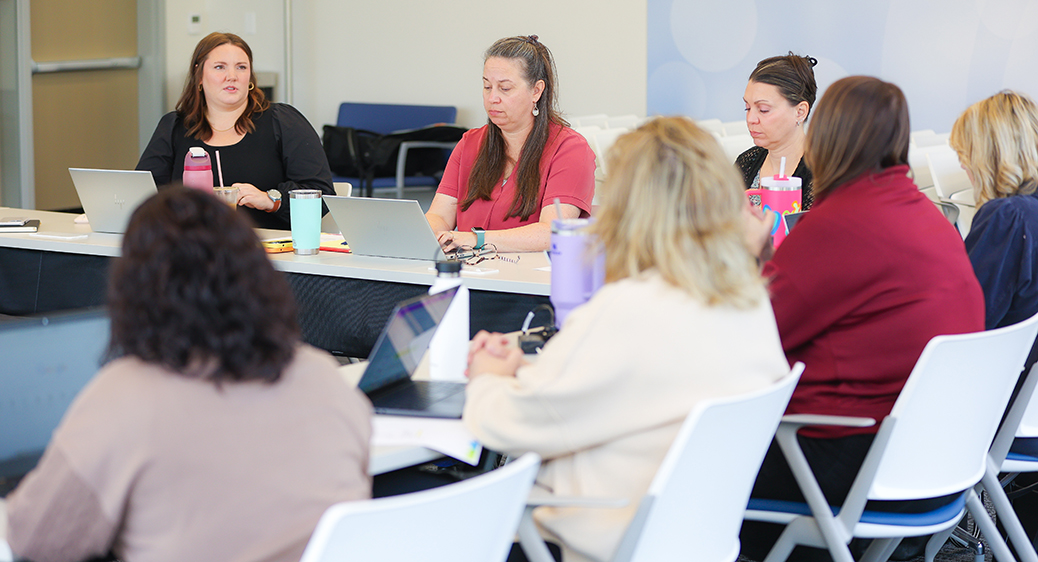While developmental disabilities and mental health conditions are different, there are instances when a person can have both. These situations can require different levels of support. In some cases, this can mean an individual has very intensive support needs. So how does Summit DD address these situations and support those with intensive needs?
What is a dual diagnosis?
The National Institute of Mental Health estimates that “more than 1 in 5 adults in the United States live with a mental illness.” This is true for those with and without disabilities. For those with disabilities, this is commonly referred to as a dual diagnosis. Summit DD has systems in place to support those with dual diagnoses, such as our Behavior Support SSAs. These SSAs have additional training to be able to provide recommendations to address behaviors where there is a risk of harm to the induvial or their staff. These Behavioral Support SSAs collaborate with a person and their SSA to come up with behavioral strategies and referrals to community mental health supports.
Challenges to support for those with intensive needs
Of those served by Summit DD with a dual diagnosis, there are some individuals with multiple mental health diagnoses. This combination of mental health conditions and a developmental disability can require a more robust support system to meet more intensive needs and address significant behavior concerns that can accompany these diagnoses. Unfortunately, with intensive need situations comes additional challenges.
Summit DD’s efforts to support individuals with the most intensive needs have been met with some obstacles such as lack of providers willing or available to support those with intensive needs, increased staffing turnover at partner sites, lack of training, and lack of local residential capacity. Oftentimes, this results in overutilizing law enforcement involvement or local hospitals to help when individuals are in crisis, ultimately taxing those systems as well.
Summit DD creates innovative wraparound service pilot program
To address the needs for individuals who require a higher level of support, Summit DD has developed the Intensive Treatment Team (ITT). This grant funded, pilot program consists of a team of internal Summit DD professionals and contracted local organizations. The Intensive Treatment Team includes Behavior Support SSAs, Speech and Language Pathologists, a Licensed Independent Social Worker, a hospital liaison, a court liaison, and community partners such as a nursing service, and a Registered Behavior Technicians or Board-Certified Behavior Analyst. Additionally, Summit DD’s Community Support Dept. will follow up with providers to ensure that they feel they are receiving the tools and resources they need to be successful to support the individual with intensive needs.
The ITT pilot program was designed to help individuals remain in their community and provide a more person-centered, community-based approach, at approximately one third of the cost.
How Summit DD’s Intensive Treatment Team works
Launching in March of 2024, the Intensive Treatment Team estimates it will support 10 people in this first year. The team meets twice each month to discuss intensive need cases and problem solve current situations. A member of the team visits the individual’s home once a week, on average, to provide support to the individual and his or her direct support staff. Crisis training is provided by Summit DD, when appropriate, and Direct Support Professionals (or DSPs) who work directly with the individual receives more direct training on individual-specific ways to deescalate situations. The Registered Behavior Technicians also spend time in the home to model the strategies and support DSPs to feel confident that they have the tools to work through challenging moments. This team can also act as the liaison between disability support providers (and their DSPs) and hospitals to assist with admission, discharge planning, and the follow up after transitioning home.
“ITT is there to provide more layers of support for someone in crisis,” explained Chris Watts, Senior Manager of Service and Support Administration. “Ultimately, our goal is to keep people in their communities – in a safe way,” she continued.
Benefits of ITT
The person-centered pilot is all about meeting individuals where they are, no matter how intensive the need, and provide the support to live a fulfilling life.
“We believe that providing services in such a comprehensive manner will provide a higher level of support to individuals, families, and provider staff,” explained Assistant Superintendent, Holly Brugh of the ITT pilot program. “This will prevent institutionalization, promote community inclusion, and provide more positive long-term outcomes for individuals.”





